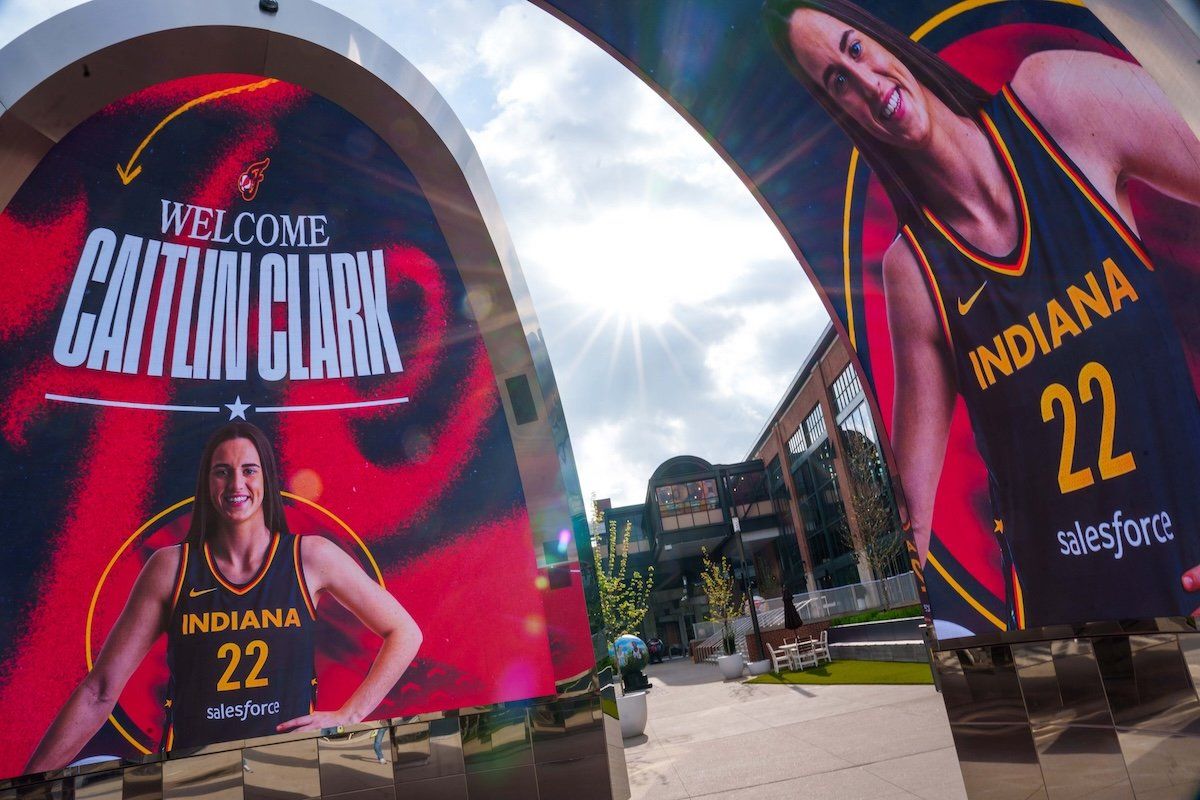Signs welcoming Indiana Fever's new player Caitlin Clark, at Gainbridge Fieldhouse in Indianapolis.
It’s been a big week for professional basketball leagues catching heat. Fans were outraged to learn that college basketball legend and all-time NCAA top-scorer and top WNBA draft pick Caitlin Clarkwill earn a meager $338,056 over four years with the Indiana Fever.
That means, Clark’s earnings will be less than 1% of the 2023 NBA top draft pick, Victor Wembanyama’s $55 million deal. It’s even lower – much lower– than some NBA mascots.
Sure, Clark is set to make $3 million in ad deals, but the gender pay gap point remains, particularly as the league continues to grow. The WNBA draws fewer attendees, television viewers, and broadcast rights revenue, which means its players have a weaker collective bargaining agreement. But with a star like Clark – who is already helping set WNBA viewership records – that balance may begin to shift thanks to a one-woman rising tide that will lift other boats.
But Clark’s pay wasn’t the only pro basketball scandal. This week, Toronto Raptors forward Jontay Porterwas banned from the NBA after an investigation found him guilty of colluding with sports bettors. He was, according to the ruling, providing information to them and betting on games, including against his own team, and “limiting his own participation in one or more games for betting purposes.”
While Clark’s contract called attention to gender-based pay discrepancies, Porter’s ouster has raised questions about player’s involvement in betting scandals (and sponsorship deals with gaming outlets) – something that has become more common following the 2018 US Supreme Court’s decision to strike down federal laws against betting on professional sports. With a bigger pool of bettors offering more opportunities for such insider betting scandals, could it be time for the legal ban – or at least limits – to rebound?